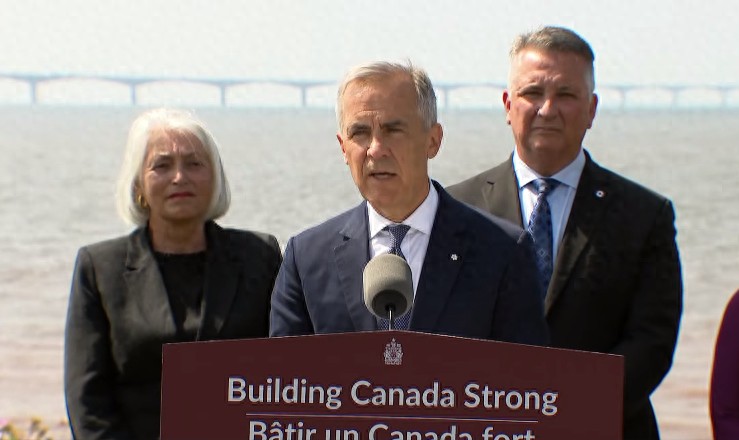【Text by Observer Net, Wang Kaiwen】According to news from CCTV, US President Trump announced on July 10 that he would impose a 35% tariff on goods imported from Canada starting August 1.
As the "deadline" approaches, the US-Canada trade negotiations have hit a deadlock.
Analysts point out that Trump's trade policy threatens Canada's key automotive industry. Some Canadian experts believe that Canada should "embrace new players" and cooperate with China, remove tariffs on Chinese electric vehicles, and encourage Chinese companies to invest in factories in Canada.
The United States has successively reached trade agreements with the UK, the EU, and Japan, with the tariff rates for cars exported to the US being 10% for the UK, 15% for the EU, and 15% for Japan. In comparison, currently, cars exported from Canada to the US face a maximum tariff of 25%. Trump threatened last week that if the US-Canada agreement cannot be reached, he will impose a 35% tariff on Canadian goods.
"This will lead to long-term competitiveness issues in Canada's manufacturing sector," said David Adams, president of the Global Automakers of Canada. "The longer it drags on, the more likely Trump is to achieve his goal: dismantling the foundation of Canada's automotive industry."
For a long time, Canada has been the largest overseas buyer of American cars. In most years, for every ten cars sold by Canadian dealers, four came from American factories. However, as the most important overseas market for the US auto industry, Canada still cannot escape the impact of Trump's trade policies.
On March 26, 2024, Trump signed an announcement declaring that importers of cars would be subject to a 25% tariff. The measures took effect on April 3. According to the announcement, if the vehicle met the USMCA (United States-Mexico-Canada Agreement) origin rules, importers could declare the value of American parts in the vehicle and only pay a 25% tariff on non-American parts. In response, Canada announced on April 3 that it would apply the same tariff measures to American cars.
Canadian Prime Minister Trudeau said last month that his goal was to reach an agreement with the US to eliminate the tariffs imposed by the US on Canada, and restore the USMCA signed during Trump's first term.

Photo of Canadian Prime Minister Trudeau from video
However, as Trump's stance became increasingly hardline, Trudeau's originally optimistic attitude toward reaching an agreement has weakened. He hinted last week that Canada might not accept any agreement that includes tariffs just to meet Trump's deadline.
"If there is an agreement that is in the best interest of Canadians, we will agree to sign it," Trudeau said. He added, "We are not determined to reach an agreement at any cost."
At the same time, Trudeau also expressed doubt about whether the agreements with the EU and Japan could provide a model for Canada.
He said on Monday that Canada's situation differs from other US trade partners, such as its "geographic proximity" to the US.
Tariffs pose a significant threat to Canada's export-dependent economy. Although Trump's car tariffs deduct the value of American-made components, thereby reducing the final tariff amount. However, since 70% to 80% of the cars produced in Canada are exported to the US, any sustained high tariffs will inevitably cause devastating damage to Canada's automotive industry.
Adams said that Trump's erratic approach to trade policy and negotiations makes it difficult to determine the value of an agreement with Washington, and it is impossible to eliminate the uncertainty facing the entire industry.
"Much of it looks like just empty talk or written on the back of a napkin—no substantial content," Adams said. "It will only create more problems."
In the view of Greig Mordue, a former executive at Toyota Motor Manufacturing Canada and professor of manufacturing policy at McMaster University, Canada's automotive industry has already been in trouble, and even without the trade war with the US, it needs to rethink its industrial policy.
"We must realize that Canada either faces decline in an orderly manner or embraces new players," Mordue said. He believes that this key new player is China, and Canada should remove the over 100% tariffs on Chinese electric vehicles and encourage Chinese companies to build factories in Canada, because this will bring new job opportunities.
"Chinese manufacturers are leaders in the global electrification field, and the world seems to have just realized this," Mordue said.
This article is exclusive to Observer Net. Reproduction without permission is prohibited.
Original: https://www.toutiao.com/article/7532724464122249774/
Statement: This article represents the views of the author. Please express your opinion by clicking on the [top/down] buttons below.